#Refractive surgery
Text
Successful refractive surgery may give you freedom from glasses or corrective lenses. But before choosing refractive surgery, talk with your eye doctor and get all the facts. Find out what refractive surgery can and can't do. Knowing the risks will help you make an informed decision.
0 notes
Text

Photo taken and edited by me. Please seek permission before copying or reproducing. For inquiries, contact me directly. Thank you for understanding and respecting my work.
#Ophthalmology#Eye care#Optometry#Vision health#Retina#Cornea#Cataracts#Glaucoma#LASIK#Macular degeneration#Refractive surgery#Eyelid surgery#Ocular surface diseases#Pediatric ophthalmology#Strabismus#Amblyopia#Oculoplastics#Diabetic retinopathy#Ophthalmic imaging#Visual field testing#Contact lenses#Intraocular lenses#Visual acuity#Eye trauma#Ocular oncology#Corneal transplant#Vitreoretinal surgery#Optical coherence tomography (OCT)#Fundus photography#Ophthalmic pharmacology
0 notes
Text
Laser Eye Surgery vs Refractive Lens Exchange: A Conversation with A/Prof Chameen Samarawickrama
When most people think of refractive eye surgery, they typically associate it with laser eye surgery such as LASIK. However, there are other refractive surgery treatment options commonly performed to address vision correction needs. Determining the best vision correction treatment involves considering several factors. Things like age, prescription stability, and overall eye health play a crucial role in the decision making process. In this blog we chat with A/Prof Chameen Samarawickrama as he shares his expertise on the difference between two commonly performed refractive surgery procedures, Laser Eye Surgery and Refractive Lens Exchange (RLE).
What are the key differences between laser eye surgery and RLE?
Laser eye surgery involves reshaping the cornea using a laser, to correct vision reducing the need for glasses or contact lenses.
On the other hand, RLE or Refractive Lens Exchange is a surgical procedure that involves removing the eye’s natural lens and replacing it with an artificial intraocular lens (IOL). The IOL is implanted at the time of the surgery, and its power is calculated specifically for your eye.
Both procedures are commonly used to treat refractive errors to reduce dependence on glasses or contact lenses.
What factors make someone a suitable candidate for laser eye surgery?
Laser eye surgery is most suitable for individuals with stable prescriptions, generally under the age of 40. Good candidates have healthy corneas with sufficient thickness and no underlying eye conditions like glaucoma or severe dry eyes.
What characteristics make someone an appropriate candidate for RLE?
RLE is often recommended for individuals over 40, especially those starting to experience presbyopia (age related difficulty focussing at near and requiring reading glasses). For this age group there are fewer years of visual benefit from refractive laser surgery before the development of cataracts which would eventually require the removal of the natural lens during cataract surgery.
Another reason we would consider RLE rather than laser is the amount of correction required. RLE is more suitable for those with higher degrees of refractive error that are often outside the treatable range for laser correction or other modalities such as Implantable Collamer Lenses (ICL).
How does astigmatism factor into the decision between laser eye surgery and RLE?
Astigmatism can be corrected through both laser eye surgery and RLE. However, the extent of astigmatism and other refractive errors will influence the choice of procedure. Laser eye surgery is often an excellent option for individuals with mild to moderate astigmatism. For those with higher levels of astigmatism or other complex vision issues, RLE with a toric IOL may offer more effective correction in older patients.
How does the longevity of results compare between laser eye surgery and RLE?
Refractive laser surgery provides long-lasting results, but it’s important to note that eyes can still undergo age-related changes, such as presbyopia and cataract formation. Refractive Lens Exchange, being a lens replacement, offers a more stable correction for presbyopia and also eliminates the need for cataract surgery in the future.
In summary, what advice would you give to someone considering refractive eye surgery?
Refractive laser surgery provides long-lasting results, but it’s important to note that eyes can still undergo age-related changes, such as presbyopia and cataract formation. Refractive Lens Exchange, being a lens replacement, offers a more stable correction for presbyopia and also eliminates the need for cataract surgery in the future.
0 notes
Text
Best Eye Hospital: Delivering Excellence in Ophthalmology
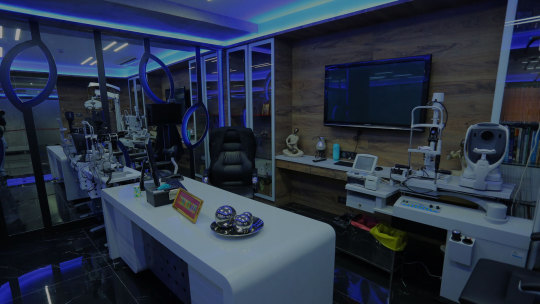
Introduction to Netradeep Eye Hospital
At Netradeep Eye Hospital, we are driven by a passion for advancing new technologies and techniques in ophthalmology. Our primary goal is to ensure that our patients receive the best possible care and have access to the latest advancements in eye care. With the expertise of Dr. V. V. Sapovadia and his dedicated team of professionals, we have earned the trust of thousands of patients not only from India but also from 22 other countries, including the United States, Canada, Australia, UK, and more.
Our Founder's Legacy: Pioneering Laser Vision Correction and Cataract Surgery
Dr. V. V. Sapovadia's pioneering work in Laser Vision Correction and Cataract Surgery has transformed the lives of countless individuals suffering from visual impairments. Through his expertise and dedication, he established a legacy of excellence that continues to shape the field of ophthalmology. Our commitment to upholding his legacy ensures that every patient who walks through our doors receives the highest standard of care.
Our Global Reach: Serving Patients from 23 Countries
The exceptional care provided by Netradeep Eye Hospital has transcended borders, making us a destination for international patients seeking top-notch eye care solutions. Patients from 23 different countries, including India, the United States, Canada, Australia, Dubai, and Kenya, have put their trust in our expertise and experienced the benefits of our advanced treatments.
Expanding to Serve You Better
As the demand for our services grew, we expanded our presence to better serve our patients. Today, Netradeep Eye Hospital has four conveniently located facilities, equipped with state-of-the-art technology and staffed by skilled professionals. Our multiple locations allow us to cater to a larger number of patients, making it easier for people to access our specialized eye care services.
Comprehensive Eye Care Services
Netradeep Eye Hospital offers a wide range of services designed to address various eye conditions and improve visual acuity. Some of the key services we provide include:
Cataract Surgery: Restoring Clarity and Vision
Cataracts can cloud the natural lens of the eye, leading to blurred vision and reduced clarity. Our cataract surgery procedures involve removing the clouded lens and replacing it with a clear intraocular lens (IOL). With advanced techniques and premium IOL options, our cataract surgery patients experience remarkable vision improvement.
Refractive Surgery: Freedom from Glasses and Contact Lenses
Refractive errors like myopia (nearsightedness), hyperopia (farsightedness), and astigmatism can be corrected through refractive surgeries. At Netradeep Eye Hospital, we offer advanced refractive procedures, including LASIK and PRK, which reshape the cornea to provide clear vision without the need for glasses or contact lenses.
LASIK Surgery: Precision and Safety
LASIK (Laser-Assisted In Situ Keratomileusis) is a highly effective and safe procedure for correcting refractive errors. Using laser technology, our experienced surgeons reshape the cornea to improve vision accuracy, resulting in reduced dependency on corrective eyewear.
Glaucoma Management: Preserving Your Vision
Glaucoma is a group of eye conditions that cause damage to the optic nerve, leading to vision loss. Our comprehensive glaucoma management approach aims to control intraocular pressure and prevent further damage, preserving our patients' precious vision.
Retina and Vitreous Services: Addressing Complex Eye Conditions
Netradeep Eye Hospital offers specialized services for retinal and vitreous disorders, such as retinal detachment, macular degeneration, and diabetic retinopathy. Our skilled retina specialists use the latest techniques to diagnose and treat these complex eye conditions.
Pediatric Ophthalmology: Caring for Young Eyes
Children require special attention when it comes to eye care. Our dedicated team of pediatric ophthalmologists provides comprehensive evaluations and treatments for various eye issues affecting children, ensuring a healthy and clear vision as they grow.
Frequently Asked Questions (FAQs)
Q: What sets Netradeep Eye Hospital apart from other eye care centers?A: Netradeep Eye Hospital stands out due to our visionary founder, Dr. V. V. Sapovadia, and his pioneering work in Laser Vision Correction and Cataract Surgery. We offer cutting-edge treatments and a global standard of care, catering to patients from 23 countries.
Q: How can I schedule an appointment?A: You can easily schedule an appointment with us online or via phone call. We are available to address any questions you may have regarding your eye condition and the type of treatment you may need.
Q: Is LASIK surgery safe?A: Yes, LASIK surgery is a safe and commonly performed procedure for correcting refractive errors. Our experienced surgeons use advanced technology to ensure precision and safety during the surgery.
Q: What is the recovery period for cataract surgery?A: The recovery period for cataract surgery is relatively short. Most patients experience improved vision within a few days after the procedure, and full recovery typically occurs within a few weeks.
Q: Are your doctors board-certified?A: Yes, all our doctors are highly qualified and board-certified, with extensive experience in their respective fields of expertise.
Q: Do you offer financial assistance for treatments?A: We understand that eye care expenses can be a concern for some patients. At Netradeep Eye Hospital, we offer various payment options and assistance programs to make eye care accessible to all.
Conclusion
Netradeep Best Eye Hospital is a beacon of excellence in the field of ophthalmology, delivering the highest quality patient care and advancing new technologies. Our founder, Dr. V. V. Sapovadia, has left an indelible mark on the world of eye care, and we carry forward his legacy with pride and dedication. With multiple locations, a global patient base, and a comprehensive range of services, we are committed to providing the best eye care possible. If you seek unparalleled eye care services, look no further than Netradeep Eye Hospital.
0 notes
Text
Indraprasth eye tech | +919810425731 | eye specialist in Noida.
http://eyetech.in/
Indraprasth Eye Tech is a top eye care clinic that offers unique solutions for all your eye health needs. Our eye doctors use cutting-edge technology and individualized treatment to get maximum results.
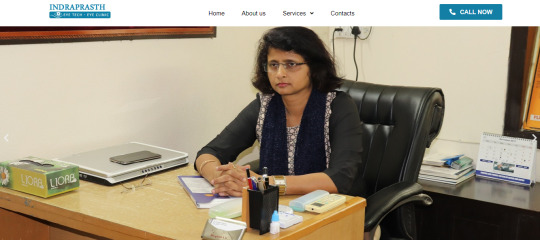
#Indraprasth Eye Tech#eye specialist in Noida#eye health.#skilled medical#surgical eye treatment#22 years in ophthalmology#ophthalmology.#Indraprasth Eye Tech Clinicexpert cataract treatments#Cataract Eye Disorders#cataract surgery and lens.#Diabetic Eye problems#Diabetes & Eye.#Lasik#ophthalmologists#LASIK treatments.#Refractive Surgery#nearsightedness#farsightedness#astigmatism.#Facilities#diagnostic and treatment#accurate diagnoses and effective treatments.#HIGH MYOPIA#myopia patients
1 note
·
View note
Text
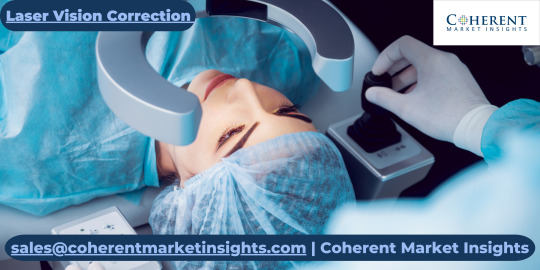
Laser vision correction encompasses various techniques, each designed to address specific vision problems. The most popular options include LASIK (laser-assisted in-situ keratomileusis) and PRK (photorefractive keratectomy). Read More: http://insightfulmarketingdigest.weebly.com/article/envisioning-tomorrow-the-evolution-of-laser-vision-correction
#coherent market insights#healthcare industry#Global Laser Vision Correction Market#Refractive surgery#LASIK#PRK#Excimer laser#Cornea reshaping#Vision correction
0 notes
Text
If you're in Aurangabad and in need of exceptional eye care, Shri Krishna Netralaya is your go-to destination. Our team of experienced eye specialists offers comprehensive services to address various eye conditions. Trust us for personalized care and advanced treatments to enhance your vision and eye health.
#Eye specialist#ophthalmologist#eye care services#vision health#eye examinations#eye surgery#refractive surgery#cataract surgery#LASIK#glaucoma treatment#retinal disorders#corneal diseases#Aurangabad#Shri Krishna Netralaya
0 notes
Text
Get The Best And Effective Laser Treatment For Eyes From Best Eye Doctor
3D Vision Eye Hospital is one of the top eye hospital in Jaipur keeping up with all international standards of treatment. Our hospital is equipped with all the latest machines and advanced Operation Theater. We also combine the expertise of the team which includes the best eye Surgeons, who are highly experienced in their specialties of Cataract Surgery, Glaucoma Surgery, Squint, Lasik eye surgery, prk surgery, icl surgery & Paediatric Eye Disease treatment.
#lasik eye surgery#laser treatment for eyes#lasik surgery#laser operation for eyes#refractive surgery#laser eye treatment#lasik eye surgery cost
0 notes
Text
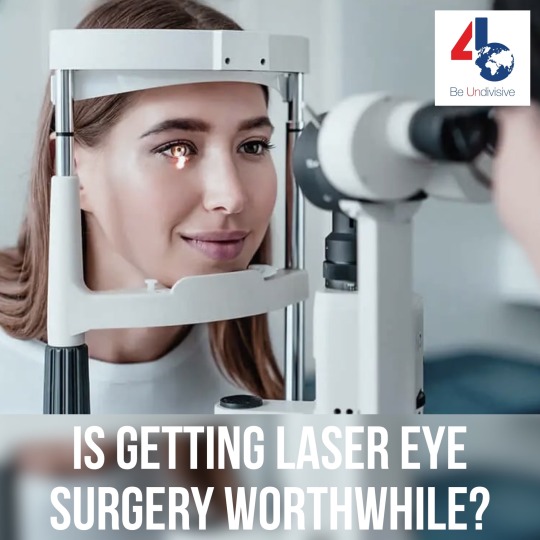
Is getting laser eye surgery worthwhile? Learn all about LASIK at @4bnewsworld to read both sides of the debate. Some facts below
In 2016, Pew Research Center reported that 9% of American adults had had laser eye surgery.
In the US, the average cost of LASIK surgery is “approximately $2,200 per eye or $4,400 for both.”
There’s more at the link in bio 👀
#lasik #eyecare #lasiksurgery #vision #eyesurgery #glasses #cataract #contacts #eyedoctor #cataractsurgery #eye #eyes #ophthalmology #lasikmata #lasikeyesurgery #glaucoma #obatmataminus #ophthalmologist #solusimataminus #operasimata #eyehealth #sembuhmataminus #eyesurgeon #nutrisimata #optometrist #refractivesurgery #eyehospital
#lasik#eye glasses#contacts#eye surgery#lasik surgery#vision#cataract#eye#eyes#ophthalmology#cataract surgery#glaucoma#eye health#opersimata#eye surgeon#optometrist#refractive surgery#eye hospital
0 notes
Text
Consultant Ophthalmologist London
Ophthalmologists are eye doctors who treat people with vision problems. They use medical and surgical abilities to examine, diagnose, and avoid problems with the eyes and visual function. You'll do a combination of medical and surgical procedures and handle disorders ranging from simple concerns like cataracts, glaucoma, or squints to infectious eye diseases and chronic diseases like adult macular degeneration.
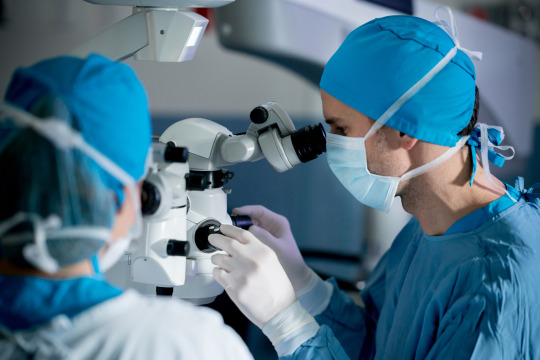
Requirements for Admission to London med-college
Your initial move should be to attend medical school. A five-year undergraduate degree in medicine often requires exceptional GCSE results and three A or A* passes at the A level, requiring chemistry. Many medical schools also need biology, while some may demand math or physics. If you already have a certificate, you might pursue a four-year postgraduate degree in medicine.
You must pass an interview and an entrance exam. You will be asked to explain how you represent NHS principles such as respect and compassion. Many med schools want students from diverse backgrounds and regional places, thus your educational and economic history, as well as your family situations, may be examined as part of the registration process.
What is the path to becoming an ophthalmologist?
Following med school, you will begin a two-year paid sponsoring in which you will work in six various settings. Following completion of your certificate program, you can apply for sponsored specialized training to become an ophthalmologist, which will take at least seven years. Part-time training may be possible for health reasons or if you have family or care obligations.
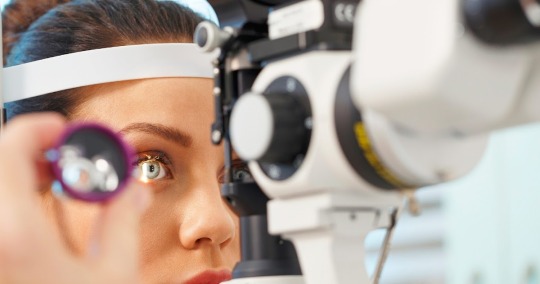
Abilities needed to get admission to a London-based medical school
· strong communication skills for managing a variety of interactions with co-workers, clients, and their relatives
· intellectual fortitude, a cool demeanor, and the capacity to operate successfully under stress
· collaboration, as well as the ability to lead heterogeneous teams
· analytical and problem-solving abilities
· exceptional organizational abilities and judgment call abilities
· first-rate financial and time management for patients' advantage
· mechanical agility is required
· great hand-eye balance, eyesight, and situational awareness
· physical endurance to meet the rigors of surgery
How much money an Ophthalmology can make in London?
If you work in Ophthalmology London, your payment will be sufficient to support a healthy lifestyle.
When you begin your foundation training following medical school, you will receive your first income. The starting pay is between £29,384 and £34,012. As an ophthalmologist in the NHS, you may expect to earn at least £40,257 per year, with the possibility of increasing to between £84,559 and £114,003 as a specialist.
#Consultant ophthalmologist london#Ophthalmology consultant London#Anterior segment surgeon london#Implantable collamer lens surgery london#Smile laser refractive surgery london#ICL surgery london
2 notes
·
View notes
Text
A Market on the Move: Exploring Investment Opportunities in Global Refractive surgery device Market
The global refractive surgery devices market is set to experience steady growth, with market valuation anticipated to reach USD 213.0 million by the year 2024. According to recent industry projections, the market is expected to grow at a compound annual growth rate (CAGR) of 3.90% from 2024 to 2034, ultimately offering an absolute dollar opportunity of USD 312.3 million by the end of the forecast period.
Request Your Detailed Report Sample With Your Work Email:
https://www.futuremarketinsights.com/reports/sample/rep-gb-780
Key Takeaways:
Market Valuation: The refractive surgery device market is projected to reach a valuation of US$ 213.0 million by 2024.
Growth Rate: The market is expected to expand at a CAGR of 3.90% from 2024 to 2034.
Future Opportunity: By the end of 2034, the market is anticipated to offer an absolute dollar opportunity of US$ 312.3 million.
Driving Factors: Key factors fueling this growth include an increasing elderly population and the rise in screen time due to Covid-19 restrictions, leading to a higher prevalence of vision issues requiring correction.
Competitive Landscape:
Owing to its extended existence, the market for equipment used in refractive surgery is crowded with businesses that have established a solid presence abroad. The devices needed for refractive procedures are supplied by these firms to hospitals, ambulatory surgical centers, and emergency clinics.
Alcon Inc., Carl Zeiss Meditec AG, Johnson & Johnson Vision, Bausch + Lomb, NIDEK Co., Ltd., and Ziemer Ophthalmic Systems AG are a few of the leading businesses in the industry. These businesses spend billions of dollars developing innovative technology to streamline, expedite, and improve the quality of surgery.
Recent Developments
In June 2023, Eye-Q introduced an Advanced Customised LASIK machine at its Rewari eye-care facility, revolutionizing laser vision correction and eliminating the need for patients to travel to Gurugram. The hospital aimed to enhance the quality of life for individuals, particularly youth aged 18-35, by offering world-class eye-care treatments.
In September 2023, Alcon unveiled its largest-ever scientific program at the 41st Congress of the ESCRS in Vienna, Austria. The event showcased over 75 abstracts, presenting new data and innovations supporting ophthalmic surgical teams across cataract, refractive, visualization, and ocular health fields.
Key Companies in the Market:
Alcon Inc.
Carl Zeiss Meditec AG
Johnson & Johnson Vision
Bausch + Lomb
NIDEK Co., Ltd.
Ziemer Ophthalmic Systems AG
STAAR Surgical Company
Abbott Medical Optics
Topcon Corporation
Essilor International
Lumenis Ltd.
HOYA Corporation
Haag-Streit AG
Schwind eye-tech-solutions GmbH
iVIS Technologies
Oculentis GmbH
NIDEK Technologies Srl
Optovue, Inc.
OCULUS Optikgeräte GmbH
Rayner Intraocular Lenses Limited
Refractive Surgery Device Market Segmentation:
By Product Type:
Lasers
Microkeratome
Aberrometers
Other Product Types
By Application:
Myopia
Hyperopia
Astigmatism
Presbyopia
Dry Eyes
By End-use:
Hospitals
Ambulatory Surgery Centers
Ophthalmology Clinics
By Region:
North America
Latin America
Asia Pacific
Middle East and Africa (MEA)
Europe
0 notes
Text
Transform Your Vision at Our LASIK Center in Jacksonville
Experience life with clear vision at our state-of-the-art LASIK center in Jacksonville. Our team of renowned LASIK surgeons offers personalized care and advanced laser eye surgery techniques.
#LASIK center in Jacksonville#florida laser eye surgery#refractive eye surger#eye surgery specialists
0 notes
Text
What is the most common eye problem in kids?
The most common eye problem in children is refractive errors, which include conditions like astigmatism, myopia (nearsightedness), and hyperopia (farsightedness).
These refractive errors can lead to blurred vision as they prevent light from focusing correctly on the retina.
Signs of refractive errors in children include frequent squinting, headaches or eye strain after visually demanding activities, holding objects close to the face, and sitting very close to screens.
Refractive errors affect almost 20% of children and are crucial to detect early to prevent potential vision damage and ensure effective treatment.
what are the symptoms of refractive errors in children?
The symptoms of refractive errors in children can vary depending on the specific type of refractive error they have. Some common symptoms to watch for include:
Astigmatism: Children with astigmatism may experience symptoms such as headache, eye strain, or severe tiredness (fatigue). They may also exhibit behaviors like eye rubbing, lack of interest in school, and trouble reading.
Farsightedness (Hyperopia): Symptoms of hyperopia in children include making close objects look out of focus, leading to headaches, eye strain, or severe tiredness. Children with hyperopia may squint, rub their eyes, show a lack of interest in school, and have trouble reading.
Nearsightedness (Myopia): Children with myopia may find distant objects look out of focus, causing headaches or eye strain. Signs of myopia can include squinting for focusing at long distances, confusion with distant objects or people, preference for near vision activities, and sitting close to screens or books
.
These symptoms are crucial indicators that parents and caregivers should be attentive to, as they can help in identifying potential vision issues in children early on, allowing for timely intervention and treatment to correct refractive errors.
0 notes
Text
Bachelor Of Science In Optometry
Duration of Course: 4 Year
Eligibility: 10+2 / Senior Secondary (with Medical Science)
Internship: 6 Months
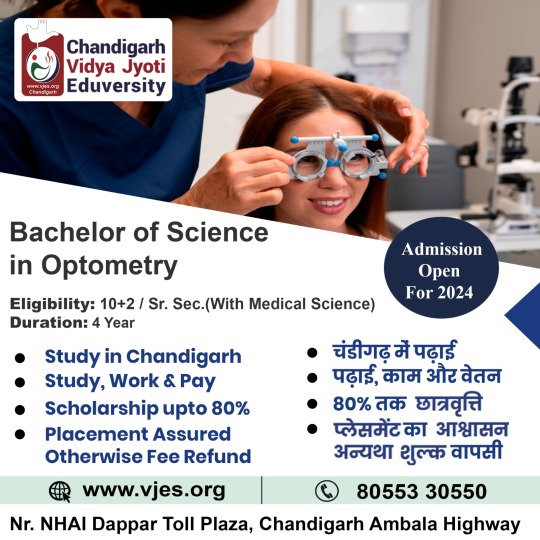
#Optician#Paraoptometric Technician#Retinal Angiographer#Refractive Surgery Technician#Ophthalmic Scribe
0 notes
Text
Exploring the Long-Term Advantages of Glaucoma Surgery
#eye care center in indore#eye clinic in indore#best eye care hospital in indore#best eye doctor in indore#eye laser operation in indore#eye specialist doctor in indore#eye surgeon in indore#top eye specialist in indore#best eye specialist in indore#eye doctor in indore#eye specialist in indore#cataract surgery in Indore#squint specialist in indore#motiyabind operation in indore#motiyabind hospital in indore#best ophthalmologist in indore#ophthalmologist in indore#lasik and refractive surgery in indore#refractive surgery in indore#lasik surgery in indore#lasik treatment in indore#best pediatric ophthalmology in indore#pediatric ophthalmology in indore#comprehensive eye check up in indore#surgery in Indore
0 notes